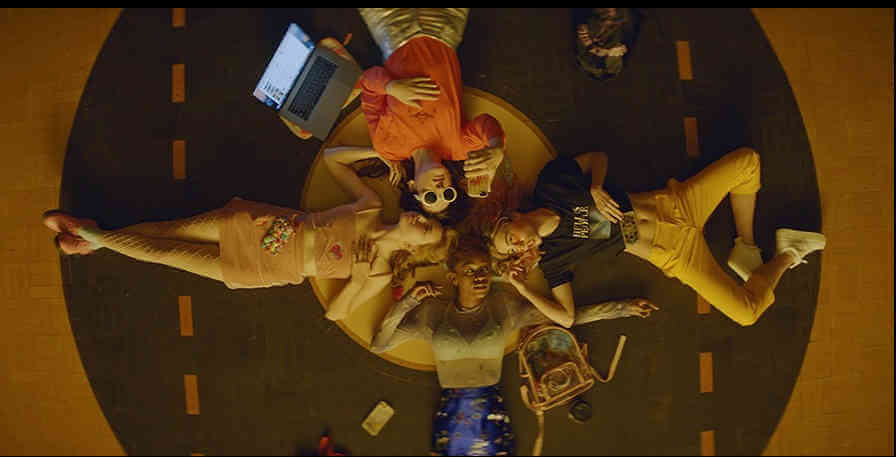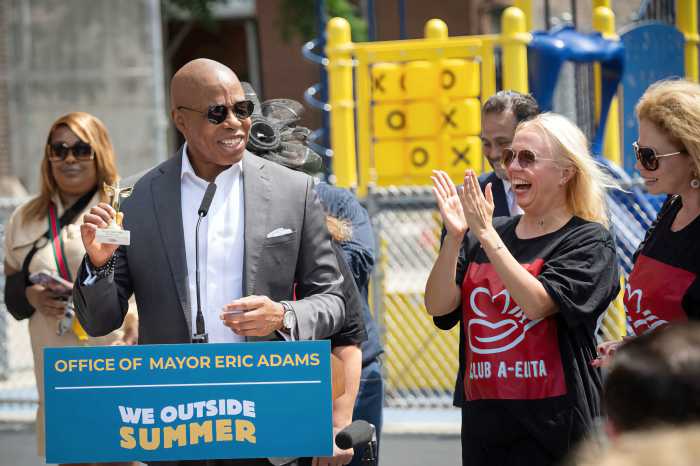Take an op-ed about social media’s negative impact on teenage girls and the rest of us, adapt it into a narrative film somewhere between Harmony Korine’s “Spring Breakers” and Oliver Stone’s “Natural Born Killers,” and you have Sam Levinson’s “Assassination Nation.” You’ve also got the worst new film I’ve seen in 2018. If it belly-dives as cinema, it’s a very telling symptom of American culture’s inability to come to terms with the impact of Facebook and Instagram.
Theoretically well-intentioned, it reproduces the objectification of young women it’s supposedly devoted to criticizing. It seems to think that pedophilia and slut-shaming came into existence around the time Mark Zuckerberg invented his social network. Levinson operates on a larger-than-life, gaudy, cartoonish canvas, drawing from the aforementioned films, Paul Verhoeven, and even gory video games to tell his story of four wronged girls in a new (and literal) Salem. The film ends with a song whose only lyrics are “fuck that,” repeated over and over on top of grating electronic music. Its attitude level is unquestionable, but this is more akin to a trip to a Hot Topic store than a Sleater-Kinney concert.
A hacker leaks information about the citizens of Salem, starting with its homophobic mayor, who is revealed as a gay cross-dresser. Lily (Odessa Young) is the main suspect. She hangs out with her three best friends: trans girl Bex (Hari Nef), Sarah (Suki Waterhouse), and Em (singer Abra). When the hacker releases data on almost everyone in Salem, its men pick up arms against the girls. Lily opens the film by saying she doesn’t know if she’ll survive the night.
Right off the bat, “Assassination Nation” gives us a lengthy trigger warning whose onscreen text is printed in red, white, and blue, in case anyone didn’t know how thoroughly American murder, sexism, and homophobia are. Of course, this is a boast about how badass the film will be rather than any thoughtful concern toward the audience. One of the problems with “Assassination Nation’ is its confusion of shallow topicality with genuine politics.
Toward the end, one girl speaks in a video about the many mixed messages America sends to teenage girls regarding sex, what they can achieve in life, and how they should express themselves. But like much of Levinson’s dialogue when he wants to make a point quite directly –– as in a scene where teenagers discuss the effects of porn on their sex lives –– this comes off as preaching disguised as youth’s real thoughts. He needed to achieve the eloquence of the “cool girl” monologue Gillian Flynn wrote in “Gone Girl” (book and film) about the ways women have to contort themselves to please a sexist culture, but he’s not talented enough.
The cinematography of “Assassination Nation” borrows from “Spring Breakers,” as well as Dario Argento and Mario Bava, with its use of purple and red colored gels, but Marcell Rév settles all too often for a clumsy pastiche that suggests a hallucinatory unreality derived from too many hours online rather than drug use. Criticizing this film for its lack of subtlety would obviously miss the point; its DNA can be traced back distantly to Frank Tashlin’s over-the-top satires of the 1950s media. But if “Spring Breakers” was equally blunt, it managed to be complex in its treatment of female sexuality –– while upfront in Korine’s lustful depiction of nudity, it made similar points about the way girls are simultaneously told to objectify and empower themselves and used pop music in a way that both respected it and critiqued its limits. The triple-split-screen scene in “Assassination Nation” showing a wild party, set to Cardi B’s “Bodak Yellow” played at high volume, is a pale echo of Korine’s bacchanalia.
“Assassination Nation” gets brownie points for casting a transgender actress to play Bex, but she is written to express a generic sassiness. In fact, all of the central quartet seem like a middle-aged man’s fantasy of hip teenage girls. The film’s critique of American culture isn’t exactly off-base, as when a man’s live-streamed suicide instantly gets seven million views. But there’s a sense of bad faith here. Earlier forms of media always take up arms against their younger competition, as when Billy Wilder’s “Kiss Me, Stupid” showed violence on every TV screen within the film. Now TV is far more respectable, and the press kit for “Assassination Nation” quotes a study saying that teenagers get more depressed the more time they spend on social media. But it seems clear that we’re undergoing a technological change akin to the early days of the printing press, and investigating how youth like these characters interact with social media, having grown up with the Internet their entire lives, is more productive than telling them to go for a walk (as Steven Spielberg’s “Ready Player One” does in its passionless final scene).
“Assassination Nation” directs them to fight fire with fire, turning into a bloodbath in its final third. The overtones of real-life violence there feel like exploitation, not exploration. Ultimately, this film pretends to be quite ambitious but settles for secondhand moralizing and storytelling.
ASSASSINATION NATION | Directed by Sam Levinson | NEON | Opens Sep. 21 citywide



































